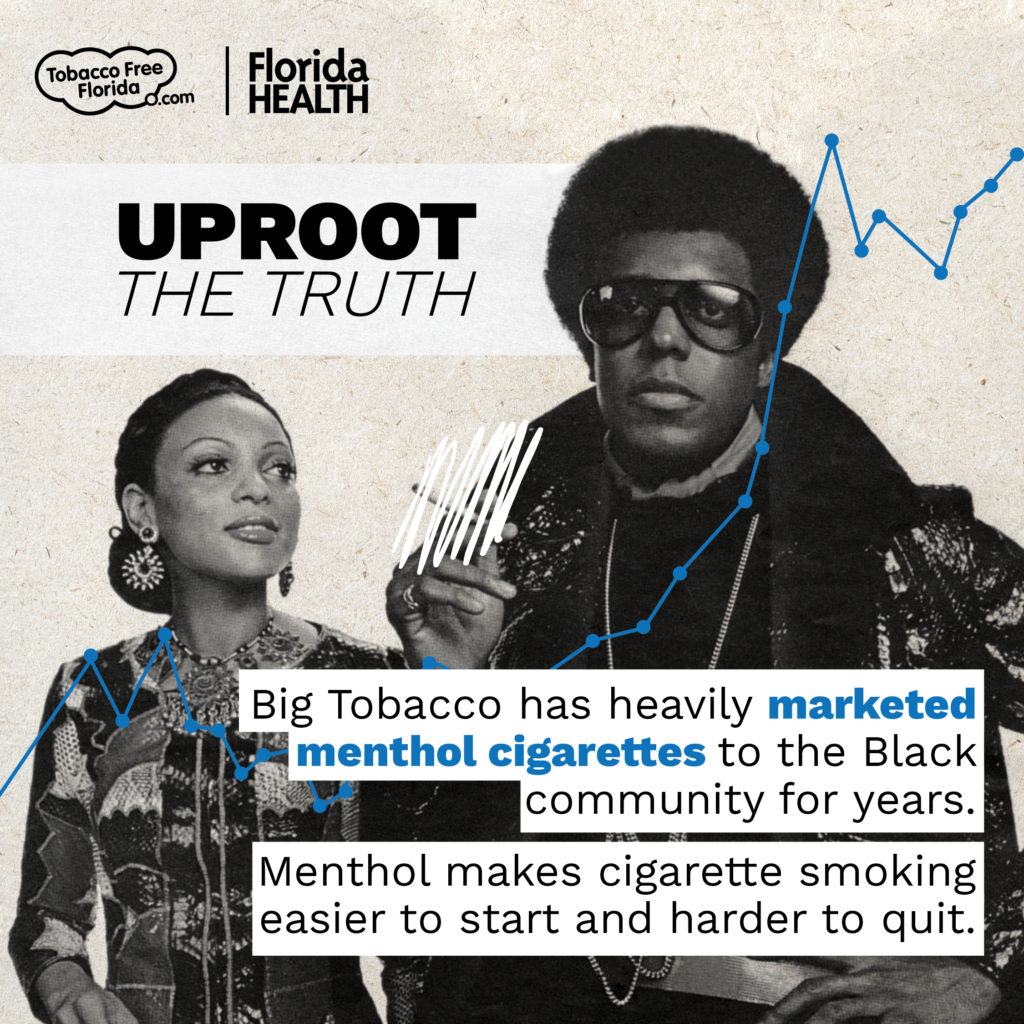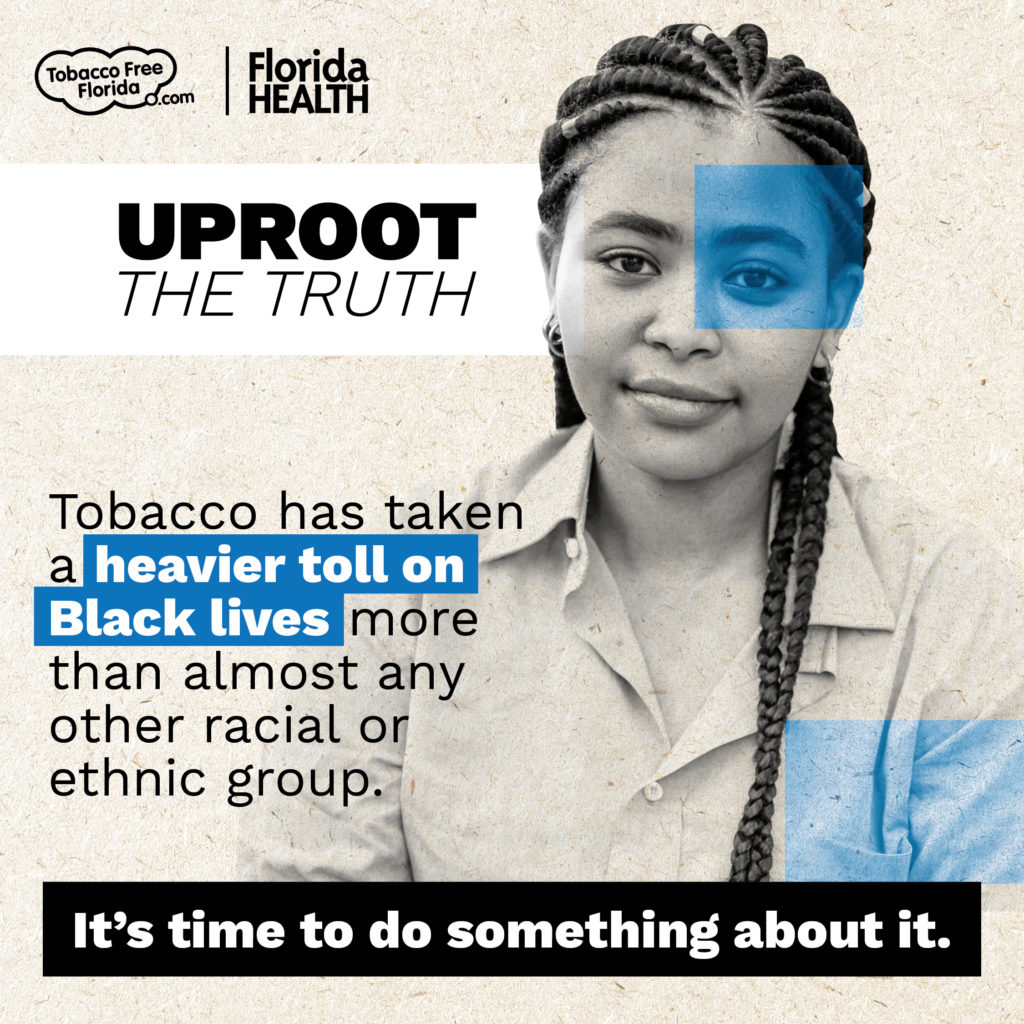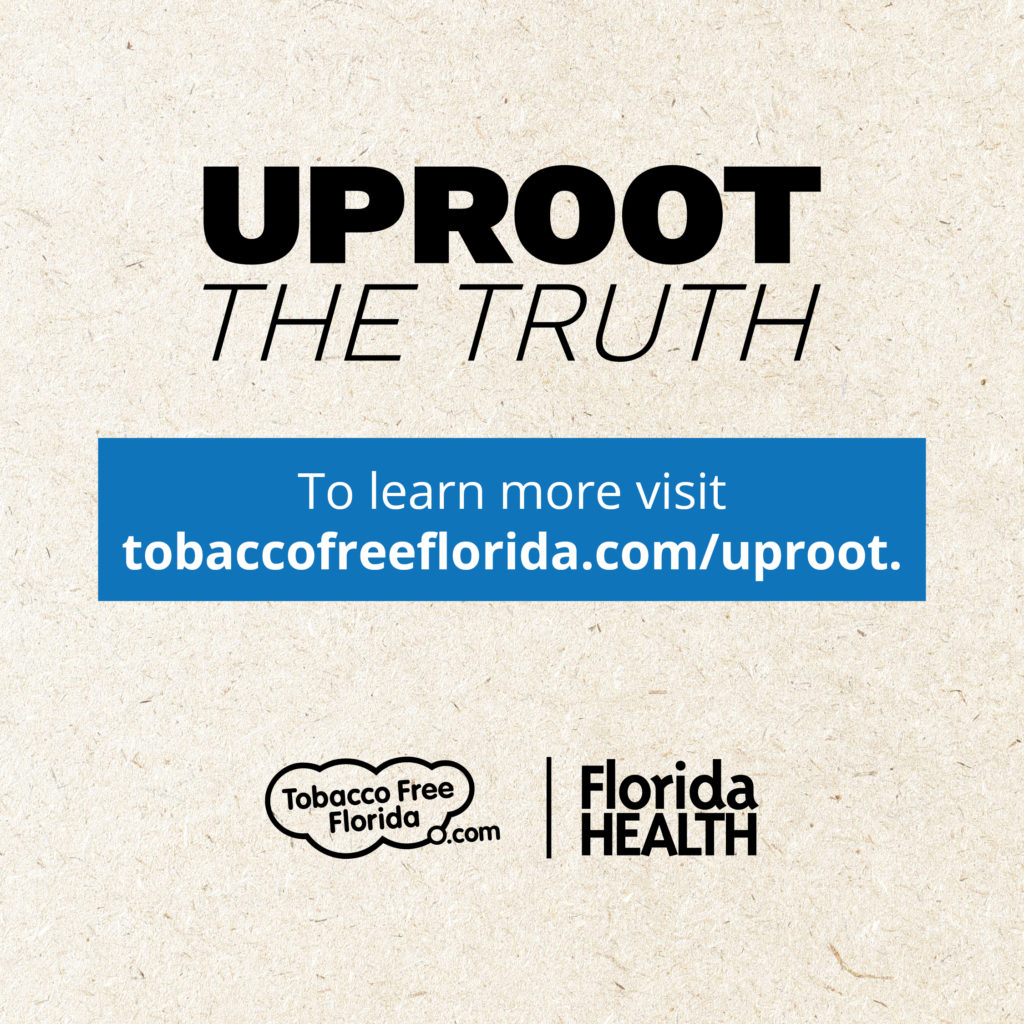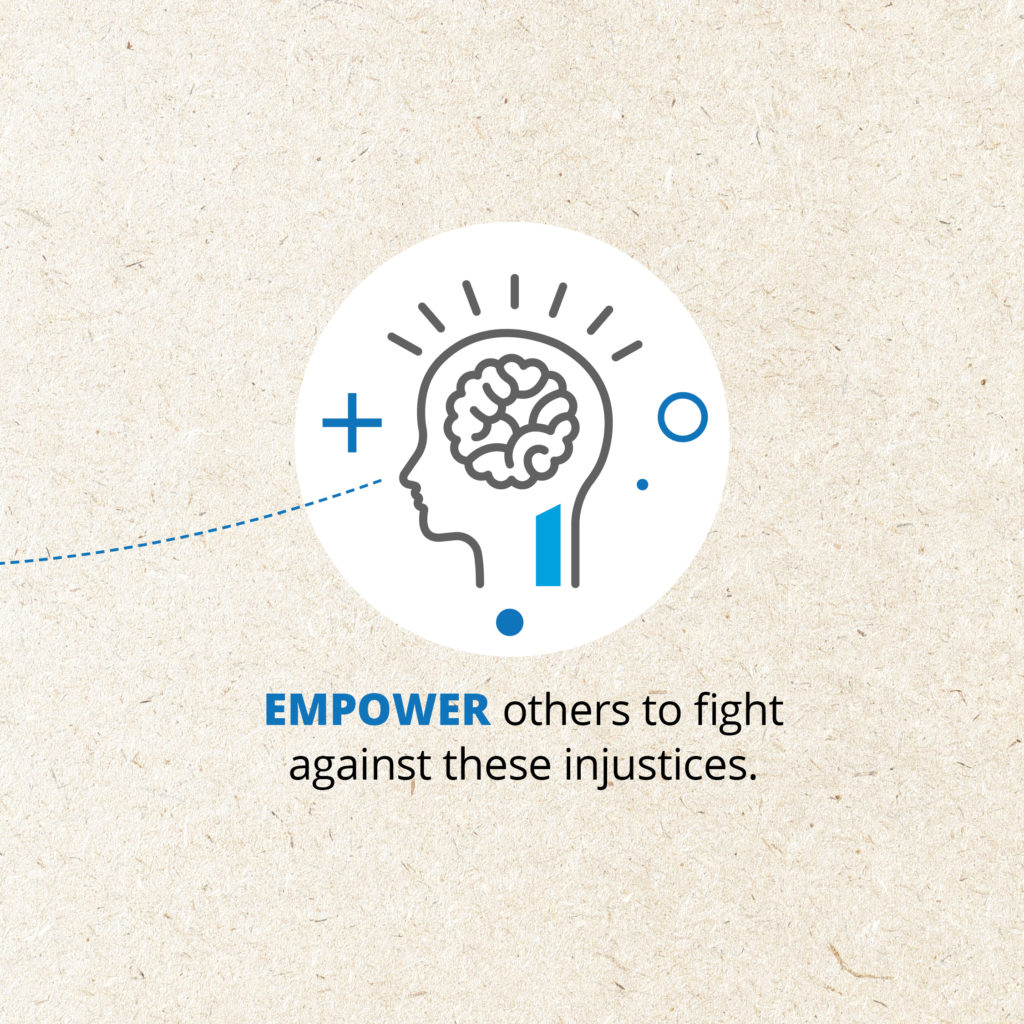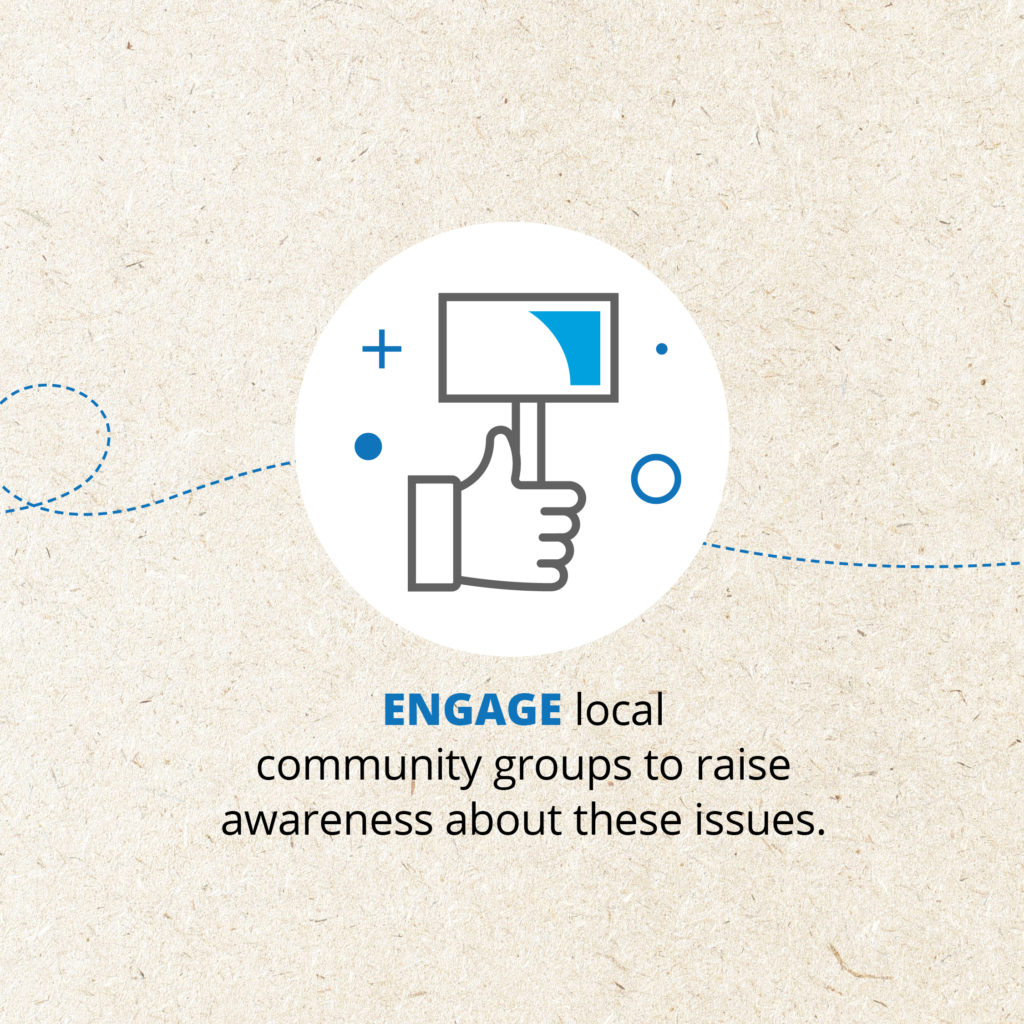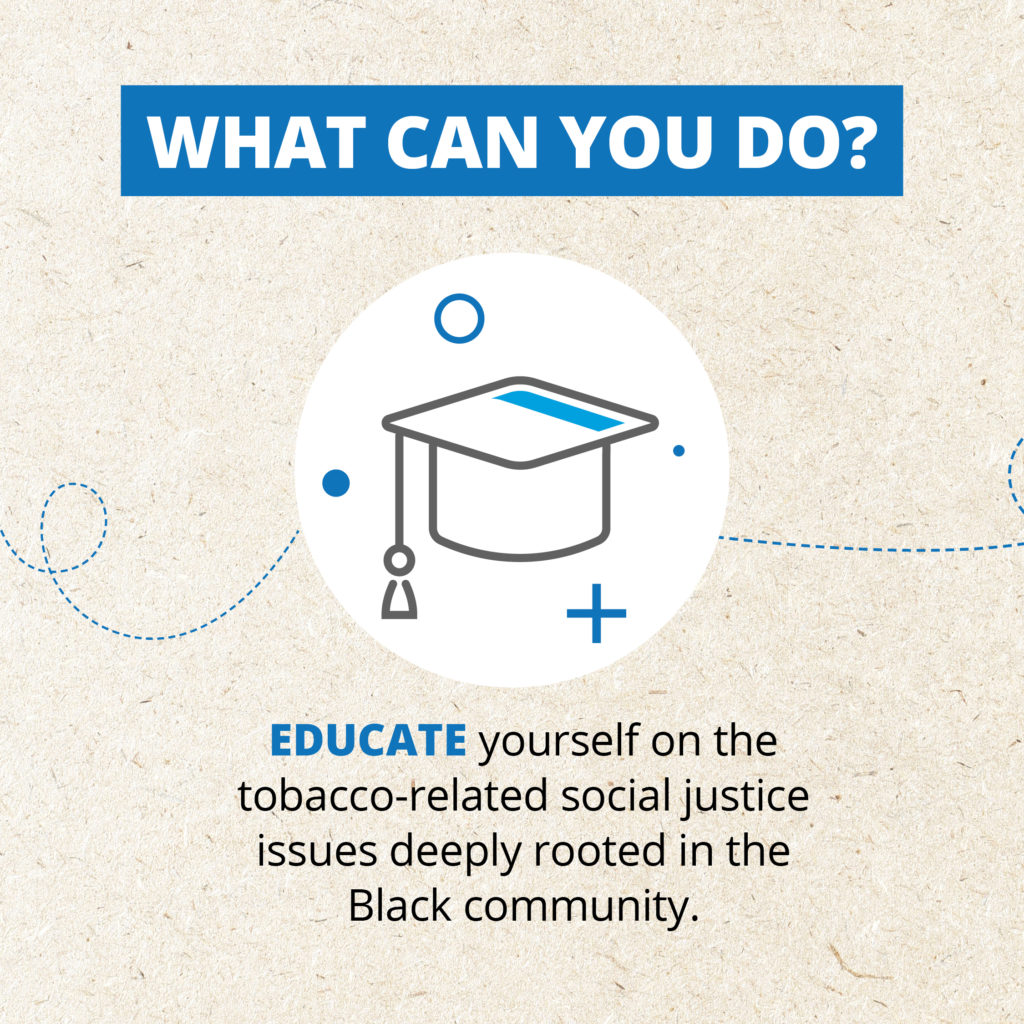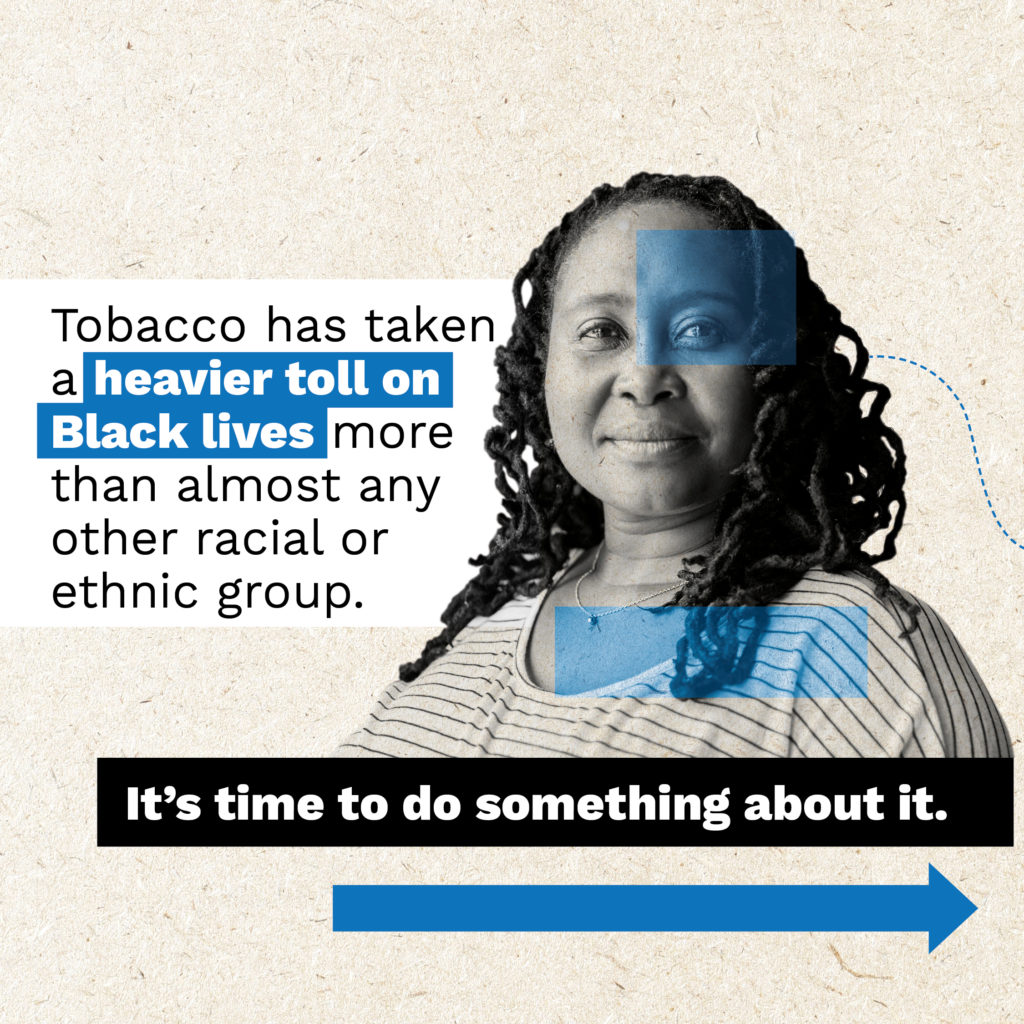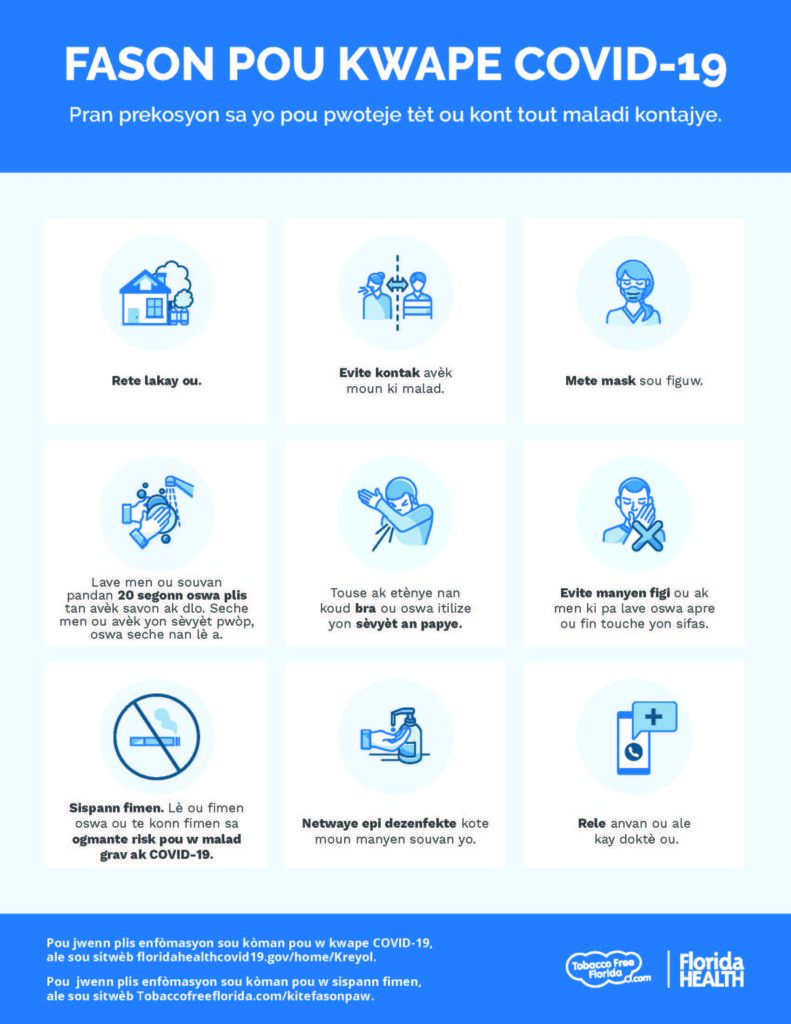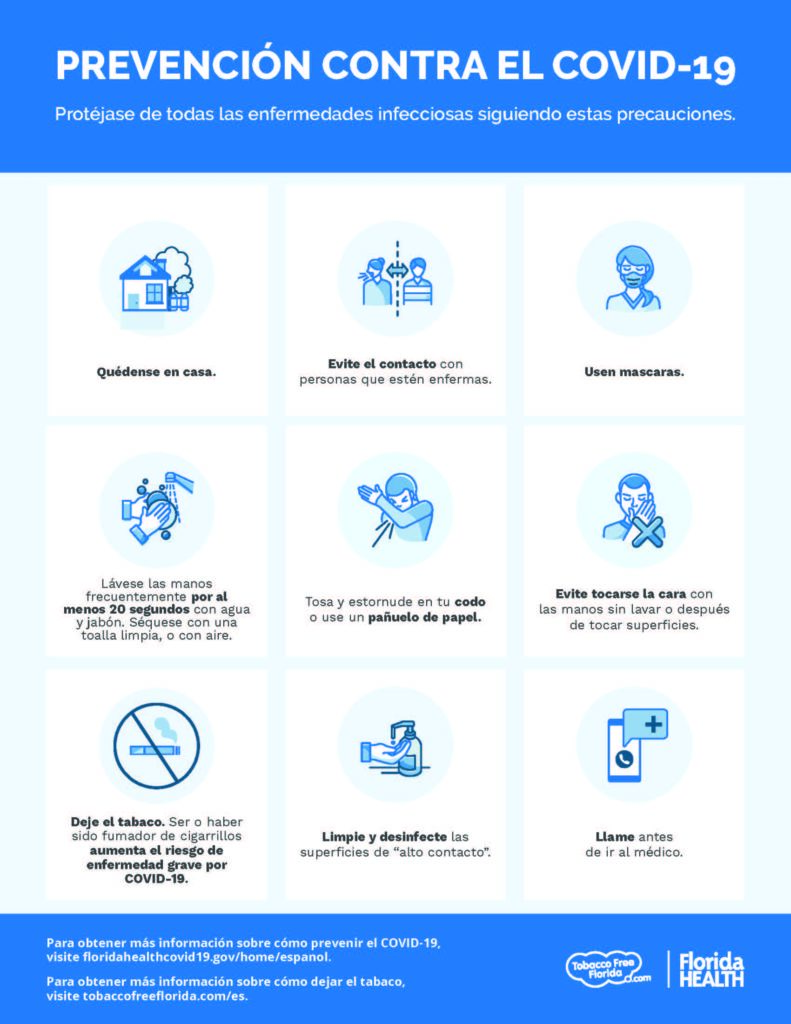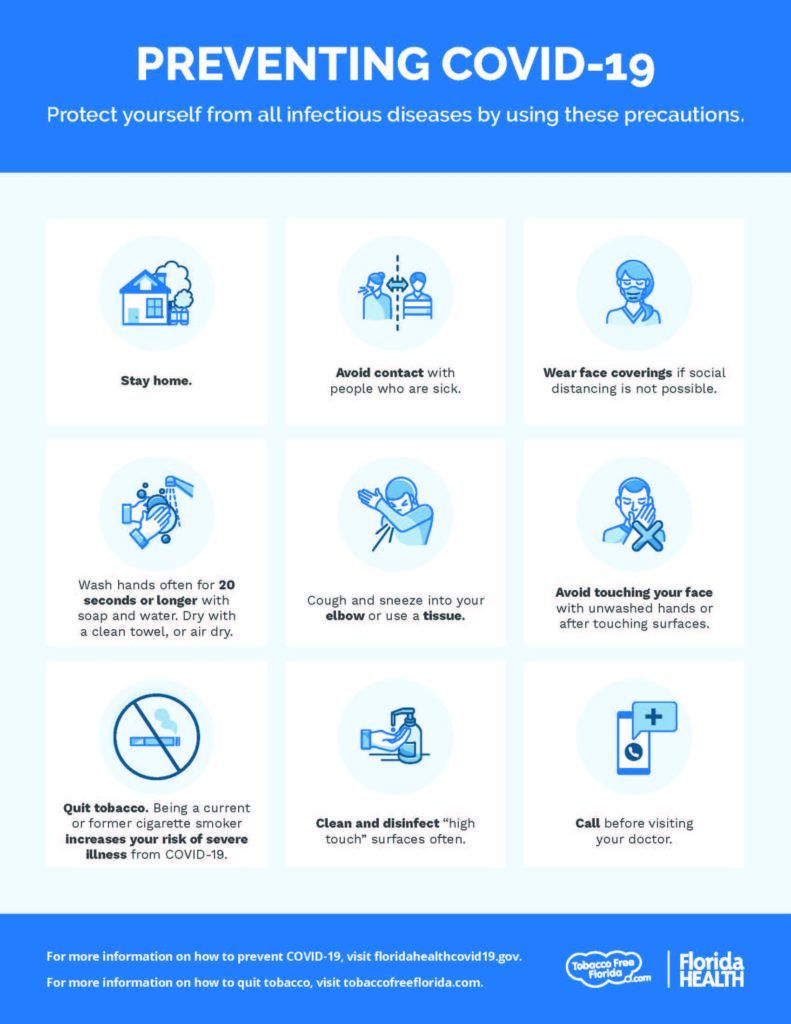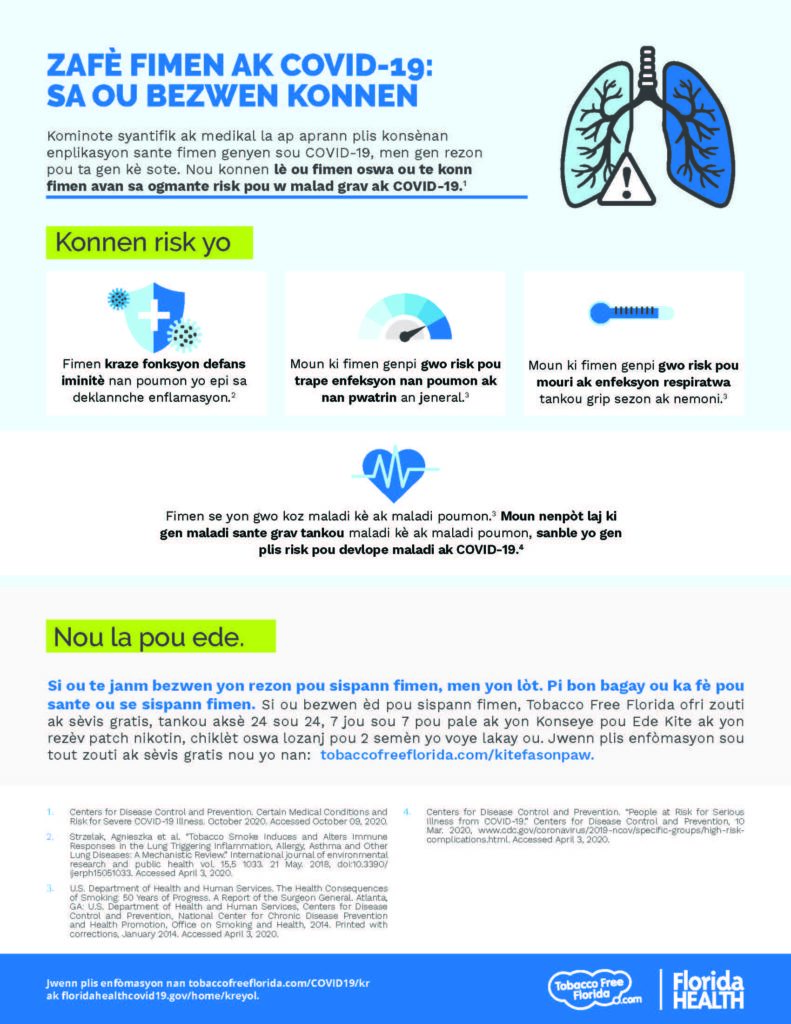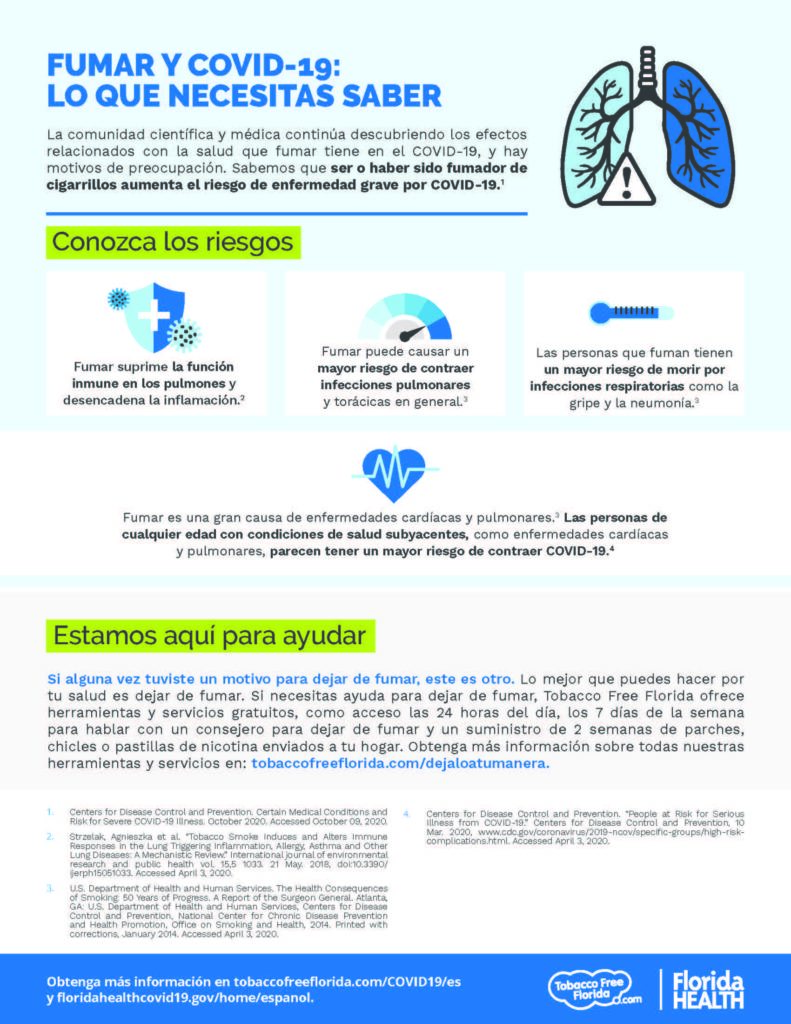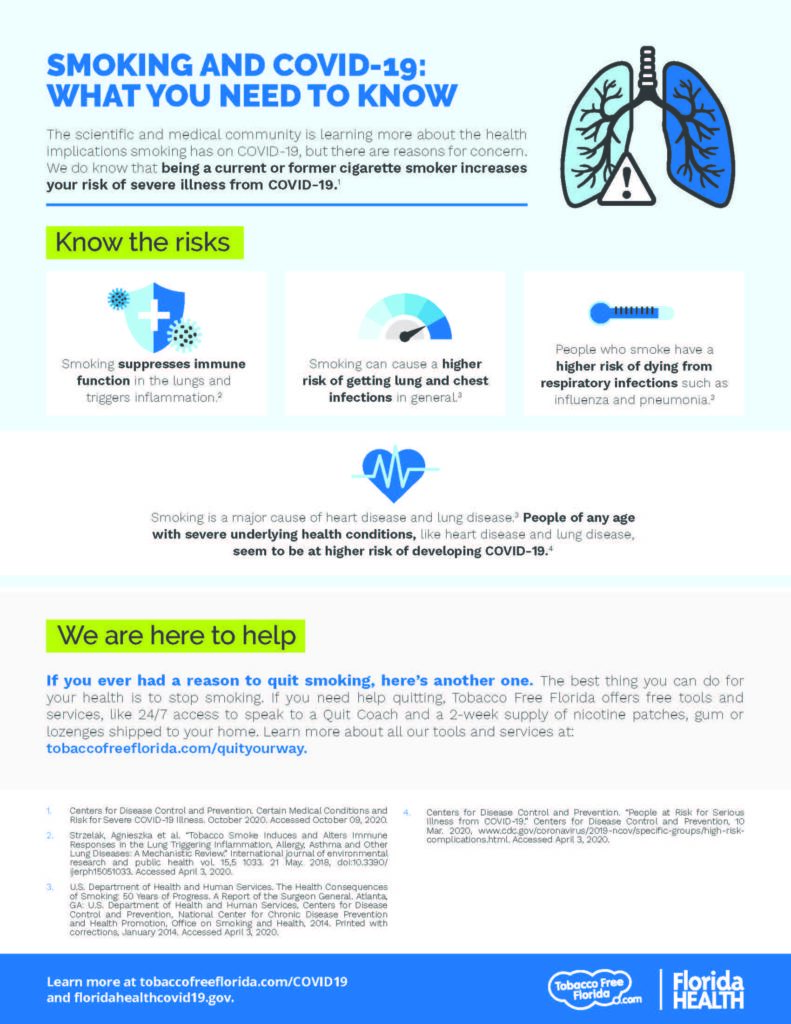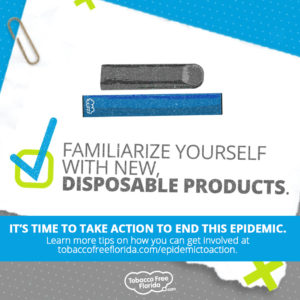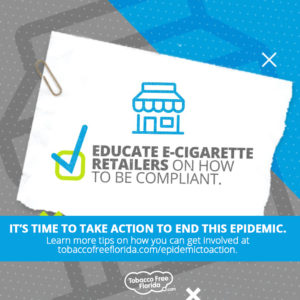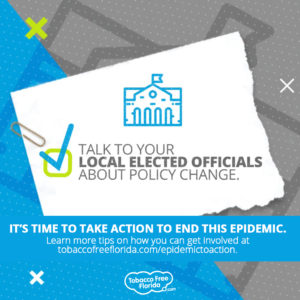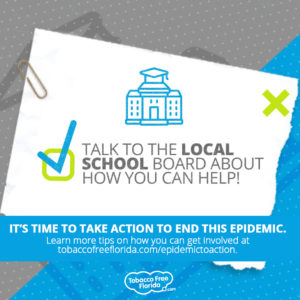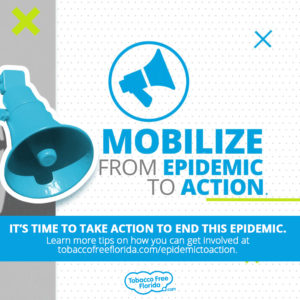Thank you for helping us protect youths and adults in Florida against the dangers of tobacco. You will find our press releases below, but feel free to contact us if you need additional information.
4/8/25 YOUTH E-CIGARETTE USE IN FLORIDA FALLS TO 7.4%, LOWEST IN A DECADE
The number of young people in Florida using e-cigarettes has dropped to its lowest level in 10 years, and combustible cigarette use continues to disappear from Florida’s schools. These are among the positive findings of the annual Florida Youth Tobacco Survey (FYTS), released by the Florida Department of Health. Progress shows the effectiveness of Tobacco Free Florida’s sustained statewide efforts to educate about the harmful and addictive nature of tobacco and nicotine products.
3/25/25 STATEMENT FROM LAURA CORBIN, BUREAU CHIEF OF TOBACCO FREE FLORIDA ON THE PASSING OF WALKER MCKNIGHT, THE FACTS NOW PARTICIPANT
All of us at Tobacco Free Florida are deeply saddened by the loss of Walker McKnight, a participant in THE FACTS NOW’s Textimonial campaign. Walker, who passed away on December 31 at the age of 25 had previously undergone a double lung and kidney transplant due to his health having been severely impacted by e-cigarettes.
6/24/24 TOBACCO FREE FLORIDA WEEK PROMOTES EDUCATION, DISCUSSION ABOUT NEW NICOTINE DEVICES
Tobacco Free Florida, a bureau of the Florida Department of Health, announced the 16th annual Tobacco Free Florida Week will be observed June 23-29 with the theme for this year’s statewide initiative, “The New Nicotine Generation: Adapt, Educate, and Overcome.” The observance is part of the program’s ongoing efforts to educate and empower Floridians about the health risks of tobacco and nicotine use. This year focuses on protecting youth and young adults from new and emerging tobacco and nicotine products through education. The timing coincides with the end of the school year and when many students across Florida begin summer break.
6/17/24 THE FACTS NOW PREVENTION CAMPAIGN GOES “BEHIND THE SCREEN” ON RISKS OF YOUTH VAPING
On June 17, 2024, THE FACTS NOW launched Behind The Screen, its new statewide initiative focusing on educating youth and young adults about the health risks associated with electronic cigarette (e-cigarette) use, or vaping.
1/17/24 FLORIDA YOUTH E-CIGARETTE USE DROPS SIGNIFICANTLY
Nine percent of Florida youth ages 11-17 are current users of electronic vapor products (EVPs), a decrease of nearly half from a peak of 16.6% in 2019. These are among the positive results in the recently finalized annual Florida Youth Tobacco Survey (FYTS), which also found that for the third straight year just 1.1% of Florida youth are currently using combustible cigarettes.
1/3/24 TOBACCO FREE FLORIDA OFFERING FREE GIFT CARDS AT GROUP QUIT SESSIONS
Tobacco Free Florida is launching an incentive program on January 1 where people who attend Group Quit sessions are eligible to receive a financial incentive of $25-$125 in gift cards (for a limited time only) as additional encouragement to quit tobacco. The statewide program follows a successful pilot program and serves as an innovative approach to cessation support.
5/14/23 TOBACCO FREE FLORIDA WEEK TO FOCUS ON SUPPORTING NEW, EXPECTANT MOTHERS
Tobacco Free Florida announced its 15th annual Tobacco Free Florida Week will have the theme “Embrace for Both” and will focus on providing tobacco prevention and cessation resources to those looking to become pregnant, expectant mothers and new mothers across the state. Tobacco Free Florida Week takes place May 14-20, aligning with Mother’s Day and National Women’s Health Week.
1/18/23 TOBACCO FREE FLORIDA SUPPORTS INTRODUCTION OF CORRECTIVE STATEMENTS IN FLORIDA RETAIL LOCATIONS
People across Florida and throughout the country will soon begin seeing “corrective statements” in thousands of retail locations, like gas stations and convenience stores, presenting information on the health risks of smoking and secondhand smoke.
1/5/23 TOBACCO FREE FLORIDA OFFERS TIPS, RESOURCES TO SUPPORT “QUIT SEASON” RESOLUTIONS
With New Year’s being “Quit Season” – a time many Floridians make the New Year’s resolution to quit smoking and vaping as part of their 2023 health journey – Tobacco Free Florida is providing tips that can increase the likelihood of successfully quitting, reminding about the free “Quit Your Way” options available and sharing our progress reducing smoking rates.
6/24/22 BUREAU OF TOBACCO FREE FLORIDA RESPONSE TO FDA MARKET DENIAL ORDER FOR JUUL
On June 23, the U.S. Food and Drug Administration (FDA) announced a Marketing Denial Order (MDO) for JUUL Labs Inc, ordering all JUUL products currently on the market be removed and directing the company to immediately stop the nationwide sale and distribution of its toxic products. The FDA’s move is a major step in ongoing efforts to address the significant public health risk posed by tobacco and nicotine products.
6/24/22 BUREAU OF TOBACCO FREE FLORIDA RESPONSE TO FDA NICOTINE LEVEL REDUCTION ANNOUNCEMENT
On June 21, the U.S. Food and Drug Administration (FDA) announced plans for a proposed rule that would set a maximum level of nicotine allowed in cigarettes and other combustible products. With the rule, the FDA seeks to reduce the harmful effects of tobacco including youth use, addiction and death. The move is part of the administration’s “Cancer Moonshot” goal of reducing the cancer death rate by at least 50% over the next 25 years.
5/12/22 BUREAU OF TOBACCO FREE FLORIDA APPLAUDS NEW FDA PROPOSAL ON PRODUCT STANDARDS FOR MENTHOL CIGARETTES, FLAVORED CIGARS
On Thursday, April 28, the United States Food and Drug Administration (FDA) proposed tobacco product standards that would prohibit menthol as a characterizing flavor in cigarettes and prohibit any flavors, other than tobacco, in cigars manufactured and/or sold in the United States.
5/8/22 TOBACCO FREE FLORIDA WEEK TO HIGHLIGHT TOBACCO CESSATION AND MENTAL HEALTH AWARENESS
The Florida Department of Health’s Bureau of Tobacco Free Florida is dedicating its annual Tobacco Free Florida Week observance to raising awareness of the connection between tobacco use and improving mental health. “Mental Health Equals Mental Wealth: Overcoming the Influences of Tobacco on the Mind” is scheduled for May 8-14, and takes place as part of Mental Health Awareness Month. Tobacco Free Florida Week is the annual initiative focusing on a specific public health issue, cause or concern connected to tobacco use and its impact across Florida.
4/18/22 TOBACCO FREE FLORIDA MARKS 15 YEARS OF SUCCESS AS FLORIDA’S TOBACCO EDUCATION, CESSATION AND USE PREVENTION PROGRAM
In commemoration of 15 years since the Tobacco Free Florida’s creation by Florida’s voters, the award-winning tobacco cessation, prevention and education program is reflecting on a decade and a half of success and refocusing today to face the public health challenges of tomorrow. In this anniversary year, Tobacco Free Florida has updated and improved its tobacco cessation offerings for adults and launched a quit program for teens who are addicted to e-cigarettes that also engages their parents for support.
2/4/22 ANNUAL AMERICAN LUNG ASSOCIATION “STATE OF TOBACCO CONTROL” REPORT
On January 26, 2022, the American Lung Association (ALA) released its annual “State of Tobacco Control” report. The analysis scores federal and state tobacco related policies, proposes specific legislative changes and assesses some of each state’s cessation and prevention efforts. Grades are assigned on various factors including state and federal funding levels.
12/29/21 TOBACCO FREE FLORIDA OFFERS TIPS AND SUPPORT FOR RESOLVING TO QUIT TOBACCO IN 2022
One of the most common New Year’s resolutions each year is to live a healthy lifestyle. The past two years have made many Floridians even more aware of the importance of being personally responsible for their own health. With the New Year approaching, for many, that means finally quitting tobacco for good.
11/1/21 BUREAU OF TOBACCO FREE FLORIDA’S STATEMENT REGARDING FDA’S PREMARKET TOBACCO PRODUCT APPLICATIONS
Recently, the U.S. Food and Drug Administration (FDA) began issuing limited, controlled marketing approval for the sale of new tobacco products through its premarket tobacco product application (PMTA) process. The FDA established the PMTA process as part of its efforts to regulate emerging tobacco products, such as e-cigarettes and other new tobacco and nicotine delivery systems.
10/1/21 FLORIDA TAKES POSITIVE PUBLIC HEALTH STEP WITH TOBACCO 21 IMPLEMENTATION
On Friday, October 1, 2021, a new law went into effect across Florida raising the minimum age to buy tobacco and nicotine products from 18 to 21 years of age. The change aligned the state with federal law and serves to define retail requirements regarding electronic cigarettes (e-cigarettes) and similar “nicotine dispensing devices.” The reform to youth e-cigarette access follows a 2019 statement by then-U.S. Surgeon General VADM Jerome Adams, declaring youth e-cigarette use to be a national epidemic and cause for great concern.
4/25/21 TOBACCO FREE FLORIDA WEEK AIMS TO UPROOT TOBACCO’S DEADLY TOLL IN THE BLACK COMMUNITY
The Florida Department of Health’s Bureau of Tobacco Free Florida is dedicating its annual Tobacco Free Florida Week to draw attention to the root causes of the toll tobacco has on Black lives. Themed Uproot the Truth: Tobacco Use in the Black Community, Tobacco Free Florida Week begins April 25, 2021 and aligns with the conclusion of National Minority Health Month.
1/29/21 THE STATE OF TOBACCO CONTROL IN FLORIDA STATEMENT FROM THE BUREAU OF TOBACCO FREE FLORIDA
On Jan. 27, the American Lung Association (ALA) released the results of its annual report, “State of Tobacco Control,” which monitors federal and state progress on key tobacco-related policies. The ALA’s grading formula is largely based on funding allocations recommended by the Centers for Disease Control and Prevention (CDC).
1/26/21 TOBACCO FREE FLORIDA HAS FREE HELP SMOKERS NEED TO STICK TO NEW YEARS RESOLUTION TO QUIT SMOKING
Many people make New Year’s resolutions to accomplish personal goals, but some resolutions do not always go according to plan. In fact, by the second week of February, about four out of five resolutions fail. Quitting tobacco is no different, and quitting for good may require several attempts. Tobacco Free Florida is encouraging those who have had unsuccessful quit attempts to try again using the program’s free and proven-effective quit tools and services.
11/16/20 TOBACCO FREE FLORIDA’S “VIRTUAL GROUP QUIT” PROVES POPULAR ADDITION TO QUIT SUPPORT
The Florida Department of Health’s Tobacco Free Florida program announced today its “Virtual Group Quit” classes – initially launched as a temporary solution to provide cessation support via Zoom video calls – will become a permanent addition to the department’s expanding suite of free quit support services.
10/20/20 TOBACCO FREE FLORIDA ENCOURAGES PARENTS AND EDUCATORS TO PROMOTE HEALTHY STUDENT BEHAVIORS AS ALL COUNTIES RETURN FOR IN-PERSON CLASSES
As all Florida counties return for in-person classes, the Florida Department of Health’s Tobacco Free Florida program is encouraging parents and teachers to talk to students about healthy lifestyles. This includes living tobacco and nicotine free and the importance of lung health.
10/5/20 FLORIDA YOUTH PREVENTION PROGRAM LAUNCHES CAMPAIGN TO COMBAT YOUTH E-CIGARETTE ADDICTION
On Oct. 5, the Florida Department of Health’s Bureau of Tobacco Free Florida youth prevention program, THE FACTS NOW, launched a new statewide youth electronic cigarette prevention campaign called Textimonials. The campaign features real testimonials from young e-cigarette users told in the language they speak – texting. The ads demonstrate how e-cigarette use can have serious effects on people’s lives, even as a young adult.
9/30/20 FLORIDA YOUTH CHOSEN AS THE CAMPAIGN FOR TOBACCO-FREE KIDS YOUTH ADVOCATE OF THE YEAR
Allyssa Williams, Osceola county high school graduate and a former member of Students Working Against Tobacco (SWAT) has been awarded as the 2020 Barrie Fiske National Youth Advocate of the Year. Each year Campaign for Tobacco-Free Kids awards
this honor to the overall top-scoring senior applicant who has demonstrated a significant commitment to tobacco prevention in their state and community. As the leading advocacy organization, Campaign for Tobacco-Free Kids works to reduce tobacco use and its deadly consequences in the United States and around the world.
6/18/20 FLORIDA YOUTH CHOSEN TO SERVE IN NATIONAL TOBACCO CONTROL ROLES
Eight members of Students Working Against Tobacco (SWAT), Florida’s youth-led statewide organization to fight back against the tobacco industry, have been selected to serve in the two Campaign for Tobacco-Free Kids Ambassador programs. Campaign for Tobacco-Free Kids is the leading non-profit advocacy organization that works to reduce tobacco use and its deadly consequences in the United States and around the world.
5/4/20 TOBACCO FREE FLORIDA WEEK URGES COMMUNITY ACTION TO FIGHT YOUTH E-CIGARETTE EPIDEMIC
The Florida Department of Health’s Bureau of Tobacco Free Florida is launching a new statewide initiative during the annual Tobacco Free Florida Week, taking place May 4 – 10, 2020. The theme, Epidemic to Action, aims to encourage communities to mobilize from Epidemic to Action. Although the increase in youth e-cigarette use rates has slowed, 25.6% of Florida high schoolers and 9.1% of Florida middle schoolers are still using e-cigarettes.
1/31/20 THE STATE OF TOBACCO CONTROL IN FLORIDA
On Jan. 29, the American Lung Association (ALA) released the results of its annual report, “State of Tobacco Control 2020,” which monitors federal and state progress on key tobacco-related policies. The ALA’s formula for grades is largely based on funding allocations recommended by the Centers for Disease Control and Prevention (CDC). The report reinforces that comprehensive tobacco control programs, like Tobacco Free Florida, are essential to make a significant impact in reducing tobacco use in the state.
1/27/20 DON’T GIVE UP ON BEING TOBACCO FREE
Many people make New Year’s resolutions to accomplish personal goals, but some resolutions do not always go according to plan. In fact, by the second week of February, about four out of five resolutions fail. Quitting smoking is no different. For many smokers, it can take several attempts to quit for good.
12/23/19 BUREAU OF TOBACCO FREE FLORIDA’S STATEMENT REGARDING INCREASED AGE TO PURCHASE TOBACCO AND ELECTRONIC CIGARETTE PRODUCTS
On Dec. 20, President Donald Trump signed a new law raising the minimum age to purchase tobacco and electronic cigarette products to 21 years old. This announcement comes in support of an effort to prevent youth tobacco initiation and curb the nationwide youth e-cigarette epidemic.
12/18/19, FLORIDA ADULT SMOKING RATE HITS RECORD LOW
New data from the Center for Disease Control and Prevention’s (CDC) Behavioral Risk Factor Surveillance System (BRFSS) reveals that the Florida adult cigarette smoking rate continues to decrease. Current adult cigarette smoking rates decreased from 16.1% in 2017 to 14.5% in 2018, nearly a 10% decrease.
11/5/19, LOWEST EVER FLORIDA HIGH SCHOOL CIGARETTE SMOKING RATES OFFER HOPE AMID NATIONWIDE VAPING EPIDEMIC
New data from the Florida Department of Health’s Florida Youth Tobacco Survey (FYTS) show an unprecedented milestone in Florida’s youth tobacco prevention efforts. According to the new data, the current high school cigarette smoking rate stands at 2.1%, the lowest it has ever been in the state.
9/12/19, BUREAU OF TOBACCO FREE FLORIDA’S STATEMENT REGARDING VAPING-ASSOCIATED PULMONARY INJURY
Several state and federal agencies have been coordinating over the past several weeks to investigate cases of pulmonary injury possibly related to electronic cigarette product use (or “vaping”), primarily among adolescents and young adults – also being referred to as the Vaping Associated Pulmonary Injury (VAPI). The Florida Department of Health’s Bureau of Tobacco Free Florida (BTFF), Bureau of Epidemiology, and Public Health Research have received several potential reports of illness, and are investigating these potential cases with the Centers for Disease Control and Prevention (CDC), county health departments and the Florida Poison Information Center Network.
7/26/2019, BUREAU OF TOBACCO FREE FLORIDA’S STATEMENT REGARDING JUUL LABS, INC. CONGRESSIONAL HEARING
On July 25, the United States House of Representatives Oversight and Reform Committee’s Economic and Consumer Policy Subcommittee concluded a two-day hearing to examine JUUL’s role in the youth e-cigarette epidemic.
7/3/2019, VAPING IS BANNED IN INDOOR WORKPLACES STARTING JULY 1
Effective July 1, a new voter-approved law takes effect under the Florida Clean Indoor Air Act (FCIAA) that bans vaping and the use of e-cigarettes in workplaces. In November 2018, Florida voters overwhelmingly approved Amendment 9 that was enacted by the legislative commission and signed by Gov. Ron DeSantis on April 26.
4/22/2019, TOBACCO FREE FLORIDA WEEK SPOTLIGHTS THE YOUTH VAPING EPIDEMIC
The federal government declared youth vaping, or e-cigarette use, a nationwide epidemic. In light of these concerns and the misinformation surrounding this topic, the Bureau of Tobacco Free Florida is helping educate parents, educators, pediatricians and partners on what they need to know about vaping and youth. This year’s Tobacco Free Florida Week, April 22–28, is themed E-Epidemic: Vaping and Youth.
12/20/2018, BUREAU OF TOBACCO FREE FLORIDA’S STATEMENT REGARDING YOUTH ELECTRONIC CIGARETTE USE
This week significant announcements have come out regarding youth electronic cigarette use. On Dec. 17, the annual Monitoring the Future survey revealed the largest increase recorded in the past 43 years for any adolescent substance use outcome in the United States: e-cigarette use. On Dec. 18, U.S. Surgeon General Dr. Jerome Adams officially declared youth e-cigarette use an epidemic in an advisory that emphasized the importance of protecting youth from a lifetime of nicotine addiction.
9/12/2018, TOBACCO FREE FLORIDA RESPONSE TO FDA DECLARATION OF YOUTH E-CIGARETTE USE EPIDEMIC
On September 12, 2018, Food and Drug Administration (FDA) Commissioner Scott Gottlieb, M.D., released a statement declaring youth electronic cigarette use an epidemic. The FDA also announced it issued more than 1,300 warning letters and fines to retailers, including requests to the top five e-cigarette manufacturers – JUUL, Vuse, MarkTen, blu and Logic – for thorough plans to address the widespread youth use of e-cigarettes within 60 days. The organization will also be investigating these brands’ marketing and sales practices as they relate to this dramatic increase in youth e-cigarette use.
06/7/18, NEW DATA: CIGARETTE SMOKING AMONG TEENS AT AN ALL-TIME LOW, BUT E- CIGARETTE USE A CONCERN
The Centers for Disease Control and Prevention (CDC) and the Food and Drug Administration (FDA) analyzed data from the 2011–2017 National Youth Tobacco Surveys (NYTS) to determine recent patterns of current (past 30-day) tobacco use among youth.
06/7/18, FACTSHEET: YOUTH TOBACCO USE
Since the launch of the Tobacco Free Florida campaign, fewer teens have started smoking. The cigarette-smoking rate among Florida high school students dropped from 14.5 percent in 20073 to 4.2 percent in 2017 – an astounding 71 percent decrease.
04/30/18, TOBACCO FREE FLORIDA SUPPORTS FDA’S ACTION ON JUUL E-CIGARETTES
On April 25, the Food and Drug Administration (FDA) announced enforcement actions and a youth tobacco prevention plan to stop youth use and access to JUUL e-cigarettes.
03/28/2018, TOBACCO FREE FLORIDA LOOKS AT DISPARITIES DURING TFF WEEK
The Florida Department of Health’s Tobacco Free Florida program is launching a new initiative during of the annual Tobacco Free Florida Week, taking place April 2 – 8. The theme, Achieving Health Equity, raises awareness of tobacco-related health disparities throughout the state. Promoting health equity—each individual achieving optimal health—is a statewide priority highlighted in the state’s newly revised state health improvement plan.
01/25/2018, THE STATE OF TOBACCO CONTROL IN FLORIDA
On Jan. 24, the American Lung Association released the results of its annual report, “State of Tobacco Control 2018,” which monitors federal and state progress on key tobacco-related policies. The American Lung Association’s formula for grades is largely based on funding allocations recommended by the Centers for Disease Control and Prevention (CDC). This year’s report reinforces some key points that make it clear sustained funding for Tobacco Free Florida is essential to make a significant impact in reducing tobacco use in the state.
01/25/2018, THE STATE OF TOBACCO CONTROL IN FLORIDA
On Jan. 24, the American Lung Association released the results of its annual report, “State of Tobacco Control 2018,” which monitors federal and state progress on key tobacco-related policies. The American Lung Association’s formula for grades is largely based on funding allocations recommended by the Centers for Disease Control and Prevention (CDC). This year’s report reinforces some key points that make it clear sustained funding for Tobacco Free Florida is essential to make a significant impact in reducing tobacco use in the state.
12/07/2017, TOBACCO COMPANIES ORDERED TO PUBLISH “CORRECTIVE STATEMENT” ADVERTISEMENTS
Eleven years after a federal court order, the four major U.S. tobacco companies – Altria, R.J. Reynolds, Lorillard and Philip Morris USA – began publishing “corrective statement” advertisements about the dangers of their deadly and addictive products on Nov. 26, 2017.
5/04/2017, WHAT’S THE TRUE COST OF SMOKING?
Governor Rick Scott has proclaimed May 7-13 as Tobacco Free Florida Week. This year, the theme for the Florida Department of Health’s Tobacco Free Florida Week is The Cost of Smoking, which focuses on what smoking costs Floridians — both physically and financially. The amount of money smokers spend can be significant. A pack-a-day smoker in Florida can spend more than $2,100 in just one year and more than $10,500 in five years.
3/29/2017, FLORIDA ADULT SMOKING RATE AT RECORD LOW BUT NEW COUNTY RANKINGS SHOW MANY COMMUNITIES LAGGING BEHIND
Tobacco Free Florida’s efforts have helped reduce the state cigarette smoking rate to a record low. In Florida, 15.8 percent of adults (ages 18+) were current cigarette smokers in 2015, the latest data available. Florida ranked 16th among the states. While smoking in Florida is low overall, there are geographic and demographic inequalities across the state, as seen in the 2017 County Health Rankings & Roadmaps report released today. Many of Florida’s rural counties had significantly higher smoking rates than the statewide average.
11/10/2016, FLORIDA ADULT AND TEEN SMOKING RATES HIT RECORD LOW
Ten years ago this month, Floridians voted overwhelmingly in support of a state constitutional amendment to fund a tobacco education and use prevention program, now known as Tobacco Free Florida. The program has resulted in a significant decrease in smoking rates among both adults and teens in the state, leading to billions of dollars and countless lives saved.
8/2/2016, TOBACCO FREE FLORIDA EXPANDS FREE QUIT SERVICES
New Program and Ads Encourage Floridians to Quit Your Way.
Quitting tobacco isn’t easy, but finding help should be. With its new Quit Your Way program, the Florida Department of Health’s Tobacco Free Florida program is making it easier for tobacco users in the state to access the free and proven-effective resources available to all Floridians. This expansion of resources offers tobacco users interested in quitting access to free tools, including a 2-Week Starter Kit of nicotine replacement patches, Text2Quit, Email Tips and a Quit Guide. They can choose as many as they need or use them in addition to Tobacco Free Florida’s Phone, Group and Web Quit services, which have already helped more than 137,000 Floridians successfully quit.
5/11/2016, TOBACCO FREE FLORIDA EXPOSES THE RISKS OF SECONDHAND SMOKE
Eighth Annual Tobacco Free Florida Week Aims to Break the Myth that Secondhand Smoke is Harmless.
Governor Rick Scott has proclaimed May 8 -14 as Tobacco Free Florida Week and to celebrate, the Florida Department of Health’s Tobacco Free Florida program is launching a new initiative, Secondhand Smoke Exposed, to educate Floridians about the dangers of secondhand smoke.
4/18/2016, CIGARETTE LITTER REMAINS A 1.69 BILLION POUND PROBLEM
Tobacco Free Florida Encourages Floridians to Play Their Part in Reducing Cigarette Litter.
This Earth Day, the Florida Department of Health’s Tobacco Free Florida Program reminds Floridians that cigarette butts are the most littered item in the world, adding up to 1.69 billion pounds of toxic litter each year. On Friday, April 22, 2016, smokers can use this observance to consider what they can do to help the environment – including quitting tobacco use.
4/15/2016, YOUTH TOBACCO & NICOTINE USE CONTINUES TO RISE
Statement from the Bureau of Tobacco Free Florida.
New data from the Centers for Disease Control and Prevention shows that the use of e-cigarettes among youth in the United States increased from 2014 to 2015. Three million middle and high school students were current users of e-cigarettes in 2015, up from 2.46 million in 2014. Results from the 2015 National Youth Tobacco Survey (NYTS) show that e-cigarettes were the most commonly used tobacco product among middle school students (5.3 percent) and high school students (16 percent) for the second consecutive year.
2/16/2016, SMOKELESS TOBACCO USE REMAINS HIGH
Tobacco Free Florida is raising awareness during “Through with Chew Week”.
The Florida Department of Health’s Tobacco Free Florida Program is raising awareness about the dangers of smokeless tobacco – like chew and dip – during Through With Chew Week. This national public awareness campaign was created to reduce the use of smokeless tobacco among young people, and Tobacco Free Florida aims to help combat this deadly addiction. Through With Chew Week takes place Feb. 14-20, with the Great American Spit Out – a day when smokeless tobacco users join together to quit – on Feb.18.


